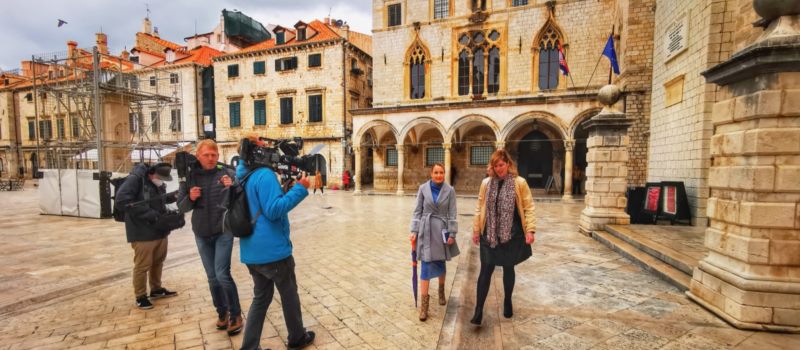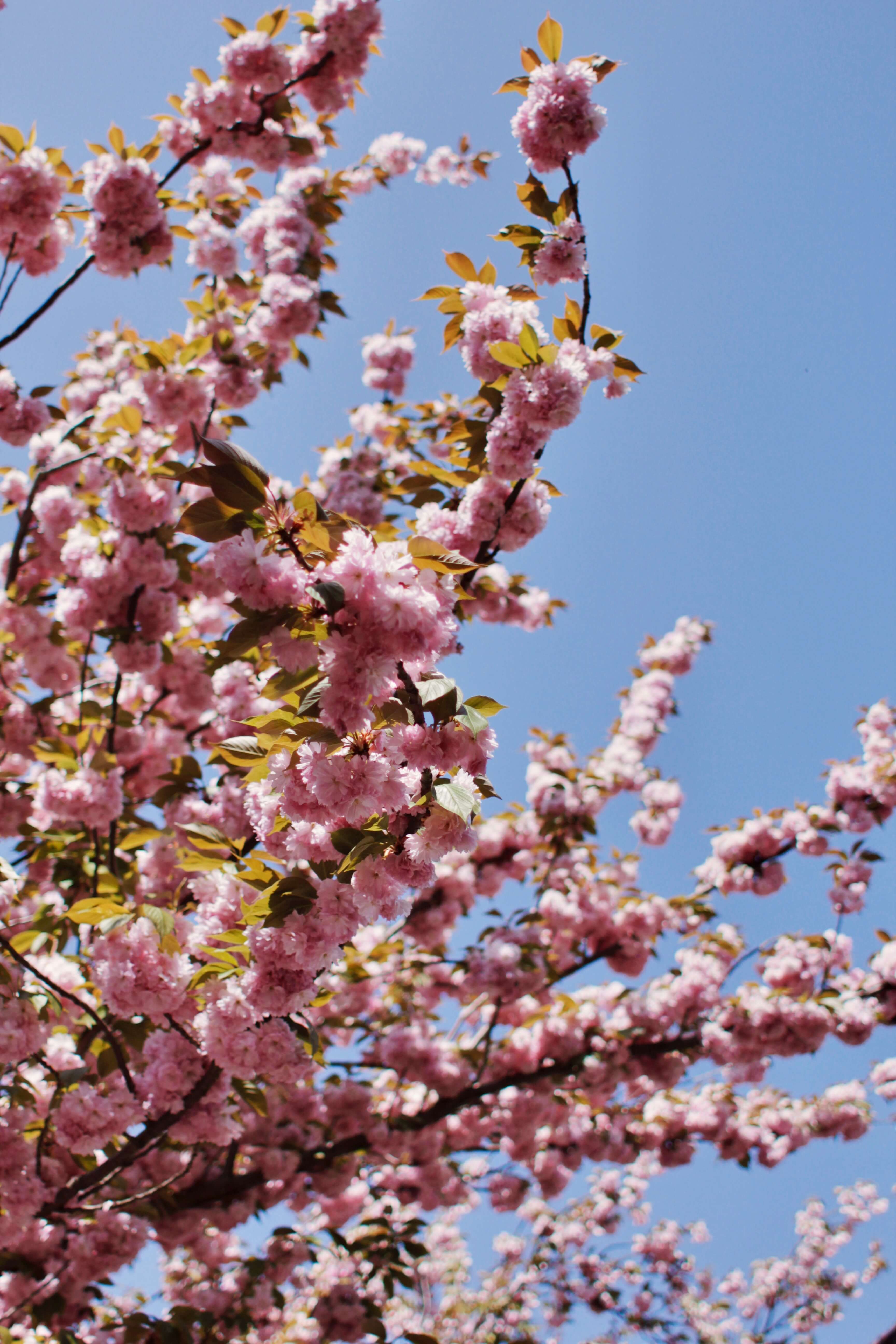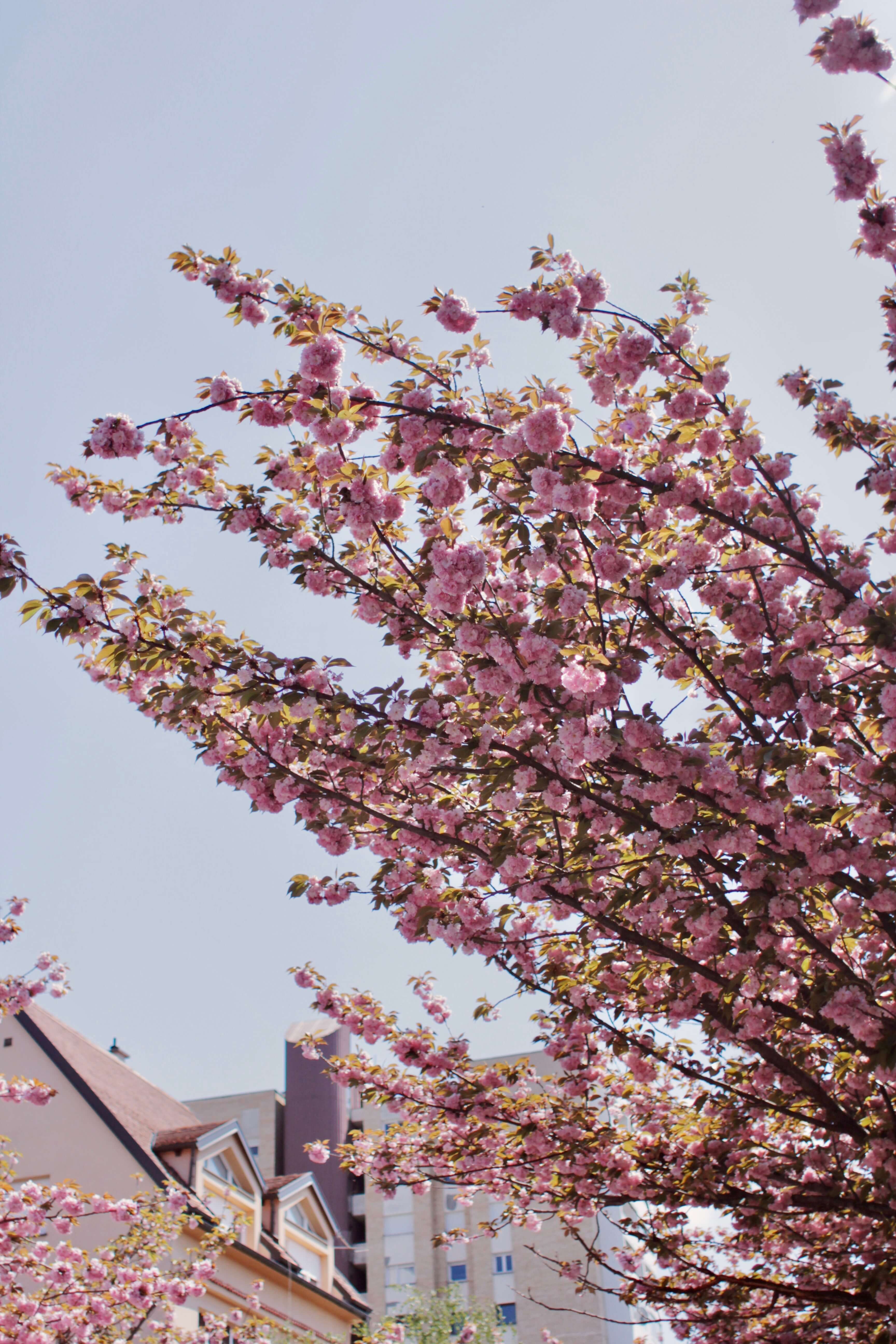Croatian PM Andrej Plenković, European Commissioner Ylva Johansson Discuss Migration Issues
ZAGREB, 23 April, 2021 - Prime Minister Andrej Plenković on Friday received European Home Affairs Commissioner Ylva Johansson for talks on migration and Croatia's accession to the Schengen Area, the government said in a press release.
The officials discussed the New Pact on Migration and Asylum, which aims to halt arrivals of irregular migrants since the migrant crisis of 2015 and 2016, and to make the Union and member states better prepared for efficient migration management, the press release said.
Prime Minister Plenković underlined that for Croatia, as a country of the EU's external border, it is exceptionally important that the talks on the new pact define key issues such as responsibility and solidarity, procedures on the external borders, strengthening cooperation with third countries, efficient implementation of readmission of migrants who are not entitled to stay in the European Union and legal migration paths.
Significant investments in technical equipment to supervise the border and its border police enables Croatia to successfully protect the EU external border and the country is ready to protect the external Schengen Area border, he underscored.
Plenković and Johansson discussed Croatia's accession to the Schengen Area. At the the Home Affairs Council meeting on 12 March Commissioner Johansson confirmed that Croatia had successfully completed the evaluation process and ensured the full application of Schengen rules and she supported the adoption of the relevant political decision in that regard.
The two officials also discussed migration trends in neighbouring countries and underscored that in order to reduce the permanent migrant pressure on the Croatian border it is key to better manage migrations along the entire East-Mediterranean route, the press release concluded.
For more about politics in Croatia, follow TCN's dedicated page.
Porec Parklets to Secure More Space for Pedestrians and Socializing
April 23, 2021 – By implementing the EU project Living Streets, Porec parklets will soon be placed on Zagrebačka Street and provide its citizens with small green oases.
A little more than half a year ago, we reported that the City of Poreč is preparing an exciting project named Living streets, revitalizing the streets of European cities, namely turning them into "living rooms," or green oases for relaxation. With the approved funds from the European Union, this project is finally starting to be realized in this Istrian town.
With the successful application of another "green" city project within the EU project EUKI (European Climate Initiative), the City of Poreč-Parenzo got a little more than 150,000.00 kunas in grants for the implementation of the Living streets project.
As part of the project, and to increase green areas, the streets of Poreč will get a new look – the so-called parklets. Parklet means an improvised green area that extends from the sidewalk to the pavement and thus occupies several parking spaces and creates more space for people, inviting them to socialize or representing a public space accessible to all. In this way, urban areas are ennobled and given back their original purpose – to serve the citizens.
In cooperation with citizens, the project aims to point out the importance of public space in urban areas. Thus, Poreč will be revitalized by systematic and long-term micro-transformations of city streets and spaces often congested with traffic and cars, especially during the summer months.
This project also seeks to reduce the use of personal vehicles, which would directly impact reducing the negative effects on human health. Also, emissions of both greenhouse and other gases would be reduced, which will significantly impact the quality of life in Poreč.
The project team has chosen Zagrebačka Street as the location of the future parklet. Besides the City, the project partners are the city company Parentium and the association Zona for improving the quality of life.

Photo: the City of Poreč-Parenzo
Source: the City of Poreč-Parenzo
To read more about this Istrian town, check our Total Croatia guide for Poreč.
For more about lifestyle in Croatia, follow TCN's dedicated page.
Parliament Adopts Report on Abridged Version of National Recovery and Resilience Plan
ZAGREB, 23 April, 2021 - The Croatian parliament on Friday adopted a report on an abridged version of the National Recovery and Resilience Plan (NPOO) to 2026 with 76 lawmakers in the 151-seat legislature supporting the document about projects worth more than HRK 49 billion.
The 2021-2026 National Recovery and Resilience Plan contains project proposals in six areas worth HRK 49.08 billion. Its drafting and submission to the European Commission is a precondition for obtaining funds from the European Recovery and Resilience Facility (RRF) for the period from 2021 to 2023. Under the RRF, Croatia has €6.3 billion in grants at its disposal, plus an additional €3.6 billion in potential loans.
The main components of the NPOO are enterprise sector; pubic administration; judiciary and state assets; education, science and research; labour market and social protection and health. Apart from the five components, there is also the initiative 'Building reconstruction' sector.
These components are divided into 22 topical sub-components that list specific reforms and investment needs.
"This is a generational opportunity," Prime Minister Andrej Plenković underscored presenting the plan to the parliament.
The plan should help us overcome the crisis as soon as possible and reforms are essential in order to absorb the available funds and they are a constituent part of the plan.
All EU member states are obliged to present their national plans by the end of April and submit them to the European Commission. After the plans are adopted 10% of the funds foreseen for each member state will be paid out in the second half of this year. Croatia can thus tap €600 million in the second half of 2021.
The investments listed in the plan have to be implemented by 31 August 2026.
Opposition parties once again complained that they did not see the entire plan but just a shortened version and that they do not believe that the plan will result in recovery or resilience.
Parliament today adopted four semi-annual reports on the absorption of European structural and investment funds for 2020 and 2019.
If all four reports are combined, we agreed projects worth more than €5 billion, (which is 45% of the funds agreed to until then) €3.02 billion has been disbursed (which is 60% of what had been paid until then) and more than €2 billion has been certified.
A report on the situation in the territory of Croatia from 2013 to 2019 was adopted as was a semi-annual report by the Croatian National Bank on the financial situation, and a report on the work of the State Commission to Supervise Public Procurement Procedures in 2019 was also adopted.
For more about politics in Croatia, follow TCN's dedicated page.
Chamber: Social Worker Didn't Error in Case of 2.5-Year-Old Child
ZAGREB, 23 April, 2021 - Findings of an inspection in the work of the social worker involved in the supervision of a family whose child died of injuries in the town of Nova Gradiška show that the social worker concerned did no make professional mistakes and that she acted in line with professional protocols.
The expert evaluation of the work of the social worker shows that she did not make mistakes or omissions which could have been conducive to the lethal outcome.
The 2.5-year-old child recently died of the grave injuries caused by domestic violence. The child had been admitted to a Zagreb-based hospital in very serious condition, and despite the efforts of the hospital's staff during her treatment, she succumbed to the injuries.
Following her death, the relevant ministry ordered an expert evaluation of the work of the social welfare centre in Nova Gradiška..
On 19 April, the Croatian Psychological Chamber said that an inspection at that centre showed that the psychologists in charge of the case acted in line with professional standards and measures defined by that centre.
In the period when the violent death happened, the relevant social worker was in self-isolation due to coronavirus.
The child and her family were under the supervision of the social welfare centre in Nova Gradiška for several years.
The family has been under supervision since 2017 and the child, who was given to foster parents for some time, was returned from the foster family to her biological family in line with a decision by that centre.
For more about politics in Croatia, follow TCN's dedicated page.
Foreign Minister Gordan Grlić Radman Slams Removal of Croatian Flag From Ambassador's Residence in Belgrade
ZAGREB, 23 April, 2021 - Croatian Foreign Minister Gordan Grlić Radman on Friday condemned the removal of the Croatian flag from the ambassador's official residence in Belgrade, saying that such incidents fomented an atmosphere of hate, hostility and intolerance.
"Such incidents are certainly not conducive to understanding (...) We hope and wish for the relations between Croatia and Serbia to be good because it makes sense that we should have stable relations," he told the press.
Croatian Ambassador Hido Biščević told N1 television on Thursday it was no accident that the Croatian flag was taken down from his residence and that the incident reflected "part of the atmosphere" in Serbian society, which he said continued to feed on hate speech.
Unknown persons removed the flag from the building which has video surveillance but no guards most likely on Wednesday morning, he said.
The Serbian Foreign Ministry said this was an "injudicious and isolated act," hoping that it "won't cast a shadow on efforts to set Serbia-Croatia relations on new foundations so that in future they can develop in the spirit of mutual trust and cooperation."
Grlić Radman said that because of such incidents "we can't say the relations have good prospects, we can't talk about a good future, but we must believe in a good future."
He announced that he will go to Subotica on 28 April for the laying of the cornerstone of a new Croatia House. His talks with local officials will also address an initiative, opposed by Croatian linguists, to declare the Bunjevci dialect an official language in that town in northern Serbia.
The minister reiterated that the initiative was contrary to the Croatia-Serbia agreement on the protection of national minorities.
He said that on 27 April the prime minister of the Vojvodina province, Igor Mirović, would visit Petrinja, struck by a devastating earthquake last December.
Serbia's EU path "goes also across Croatia"
The minister went on to say that Serbia's EU path "goes also across Croatia." Before Serbia joins, it is necessary to resolve the issue of the war missing, universal jurisdiction, and reparations for POWs, he said.
Serb representatives have three guaranteed seats in the Croatian parliament and Croatia wants Croats in Serbia to be represented as well, he added.
Serbia "must actively and strongly deal" with reforms, the fight against corruption, and the rule of law, he said.
Serbia was granted EU candidate status in March 2012 and began accession negotiations in January 2014.
Ambassadorial appointments
Although Prime Minister Andrej Plenković and President Zoran Milanović have not yet agreed on the appointment of new ambassadors and consuls, Grlić Radman said he did not think the process was blocked and that there was "only one Croatian diplomacy."
He dismissed the possibility of a quota or a 50:50 model (between the president's and government's proposals). He said "agreement must be reached" and that one could talk about the list of candidates the government had sent the president, but that the government was not in favour of quotas.
He said the candidates were "professional diplomats who have proved themselves on the job."
Milanović, on the other hand, wants it to be known who is behind which ambassador for responsibility's sake, saying that this has been the practice before.
For more about politics in Croatia, follow TCN's dedicated page.
Commander of U.S. Air Forces For Europe, Africa Visits Croatia
ZAGREB, 23 April, 2021 - General Jeffrey Harrigian, commander of United States Air Forces in Europe and Africa and of Allied Air Command, visited Croatia on Thursday, the Defence Ministry said on Friday.
Harrigian met with the ministry state secretary, Zdravko Jakop, the director of the Croatian Armed Forces General Staff, Major General Ivica Olujić, and the commander of the Croatian Air Force, Brigadier General Michael Križanec.
They discussed the development of bilateral cooperation in defence and Agile Combat Employment, which is based on interoperability, as well as agreements regulating access to the Allied infrastructure and air space.
The Croatian Army, as an active NATO member, is participating in many international military exercises and activities which enhance the common capabilities and intensify cooperation between the member states, including the DEFENDER-Europe 21 and Astral Knight 21 exercises.
Jakop thanked the U.S. for donations and training assistance, saying that the bilateral relations were developed and that the U.S. "is the most important strategic partner in global security building."
Harrigian said he was looking forward to joint participation in Astral Knight, an exercise taking place in Croatia which, he said, offers an exceptional opportunity to train with some of the strongest allies.
Križanec underlined the importance of joint participation in international military exercises and activities this year, including Adriatic Strike 21, Astral Knight 21 and Immediate Response 21.
Air forces, owing to rapid action and deployment in an exceptionally wide operations area, play a significant role in supporting deterrence as a key element of NATO's collective defence, he said.
For more about politics in Croatia, follow TCN's dedicated page.
Croatian Employment in March 2021: Winning on Monthly Basis, Losing Compared to 2020
April 23, 2021 - Data analyzed by the Croatian Bureau of Statistics saw Croatian Employment in March 2021 rise compared to February but is overall lower than last year.
Employment in Croatia is overall down for 1.5% - concludes an article in Slobodna Dalmacija. This is the result of a statistical analysis conducted for this year's March compared to March 2020. The biggest fall in employment is evident in the hotel industry and hospitality. Last March, 410 people were employed in the sector, adding to the total number of 61,913, but that number is smaller for 5,087 people compared to last year when the number of employed in hotel tourism and hospitality counted 67,000.
„Compared to February, the total number of employed (in March) is up by 0.8% but compared to the same month last year; the numbers are down by 1.5%“, Slobodna Dalmacija quoted the explanation of Croatian Bureau of Statistics.
The process manufacturing industry also counts losses. Despite 2,129 newly employed people who boosted 225,287 workers in the sector, that number is down by 2000 workers less as last year the count was 227,287.
Merchants count a rise of 803 new workers, 201,117 in total. But, this time last year the total number was 205,167, so this year's there are 4,050 people less in the sector.
On the other hand, several sectors can celebrate victory over statistics from 2020.
The construction sector hired 1,060 new workers. 100,234 people in total this year gives a 5924 boost compared to last year's 195,193 employed people.
Education has 1,094 new workers this month, 120,246 in total. This time last year's there were 117,891 people in total, which suggest 2,355 people increase.
Public service, social security, and defense sectors increase by 648 people to a total of 111,785. In conclusion, 1,325 more people are welcomed to the sector, compared to 2020 when there was 110460 in the mentioned sectors.
Expectedly, health and social care sectors in March counted 102,636 employed, which is a 1,392 increase compared to last year's 101,244 employed people.
In absolute numbers, the mentioned sectors had the biggest influence on the total rise of employment in Croatia last month, which jumped to 11,302 people, 1,518,034 in total.
The Bureau added that when counting all minuses and pluses, last year's numbers are better, but the progress is happening in this year nonetheless.
Additionally, the average salary in Croatia is 7038 kuna, pointed out Slobodna Dalmacija.
learn more about doing business in Croatia on our TC page.
For more about business in Croatia, follow TCN's dedicated page.
Dubrovnik Show to be Recorded By German Television SWR This Week!
April 23, 2021 - Südwestrundfunk, or SWR, is one of Germany’s most-watched television public networks, and its crew is currently working on a Dubrovnik show.
The Dubrovnik Tourist Board reports that the camera crew of the German television SWR, which has about 14 million viewers and is part of the large ARD TV system, will be in Dubrovnik from April 20 to 24. During their four-day stay, a three-member team of national television is recording a Dubrovnik show on the topic of the future of tourism.
In an interview with SWR, the director of the Dubrovnik Tourist Board Ana Hrnić spoke about various topics, from the situation before and during the pandemic, the cruising industry, tourism workers, guides, Respect the City projects, the Digital Nomads in Residence, Safe stay in Croatia, and the future the concept of tourism in Dubrovnik. Ana Hrnić pointed out that a difficult and challenging year is behind us, but despite that, now is the opportunity to turn in the direction of developing sustainable tourism.

Credits: Dubrovnik Tourist Board
Accompanied by a German-language guide, Gabriela Lučić, a German TV crew in Dubrovnik filmed conversations with several Dubrovnik residents about how the pandemic had changed the world and had an impact on their lives and work: from guides, restaurant owners, craftsmen, farmers, and private renters.
The German market is one of the most important emitting markets in Dubrovnik. In previous years, German tourists were in third place on the top list of the most numerous guests in Dubrovnik. In 2019, 111,446 German tourists stayed in Dubrovnik, with 294,661 overnight stays.
If you want to know more about the things to do and see in the ''Pearl of the Adriatic'' in 2021, visit Total Croatia's Dubrovnik in a page HERE.
Follow the latest on flights to Croatia HERE and the latest travel updates and COVID-19 news from Croatia HERE.
For more on travel in Croatia, follow TCN's dedicated page.
Croatia Registers 2,529 New COVID-19 Infections, 46 Deaths
ZAGREB, 23 April, 2021 - Over the past 24 hours, Croatia has registered 2,529 new cases of the coronavirus infection and 46 deaths, the national COVID-19 crisis management team said on Friday.
There are 2,227 COVID patients in hospital, 221 of whom are on ventilators.
Since the start of the epidemic, 318,837 people have contracted coronavirus, 6,784 of them have died, while 295,885 have recovered, including 2,431 in the last 24 hours.
There are currently 34,660 people in self-isolation, and the number of active cases in Croatia stands at 16,168.
To date, 1,743,017 people have been tested, 8,783 of whom over the past 24 hours.
As at 22 April, 746,878 doses of coronavirus vaccines have been administered in Croatia, and 593,972 people have been vaccinated, with 438,706 people receiving the first dose and 152,906 receiving both doses. For 2,360 people there is no data on how many doses they have received.
For more about COVID-19 in Croatia, follow TCN's dedicated page.
Zagreb in Spring: Šulekova Through Lens of Roza Zanini Mozara
April 23, 2021 - With the capital of Croatia in full bloom, photographer Roza Zanini Mozara captured the magic of Zagreb in spring on the colorful Šulekova street.

Zagreb is one of the cities with the best places to get great photos during spring, from Kralja Tomislava square to the botanical gardens, no matter where you walk or where you’re heading, you will always find some colorful trees or bushes screaming for attention.

Despite having been an atypical spring season in which in addition to some cloudy days, incessant rains, low temperatures, and even snowfall; none of that has prevented Zagreb in spring from flourishing like every year. But among all the places one can visit in the capital of Croatia to immortalize spring through an image, Šulekova street is probably the most photogenic in the city and ideal for any photographer addicted to colors!

Each spring, the Japanese cherries begin to blossom, and because Šulekova is full of them, you can notice a street completely painted in pink. Through her lens, photographer Roza Zanini captures the famous Šulekova in a way that looks like it came straight from a fairy tale, with the pink leaves covering not only the trees but the streets as well. Works perfectly as a setting for any romantic story or spring postcard!
It should come as no surprise then to know that Šulekova street is considered by many as the most beautiful street in Zagreb!

So where is this wonderful street located? It is between the Maksimirska and the Kralja Zvonimira streets, not far from Maksimir. Zagreb in spring is a must!
If you want to see more of Roza's photography work, be sure to visit her website.
For our 12-month guide on when to visit Croatia, click HERE.
If you're looking for more information about the situation regarding flights to Croatia, click HERE.
For more news about travel in Croatia, check our dedicated TCN section.


